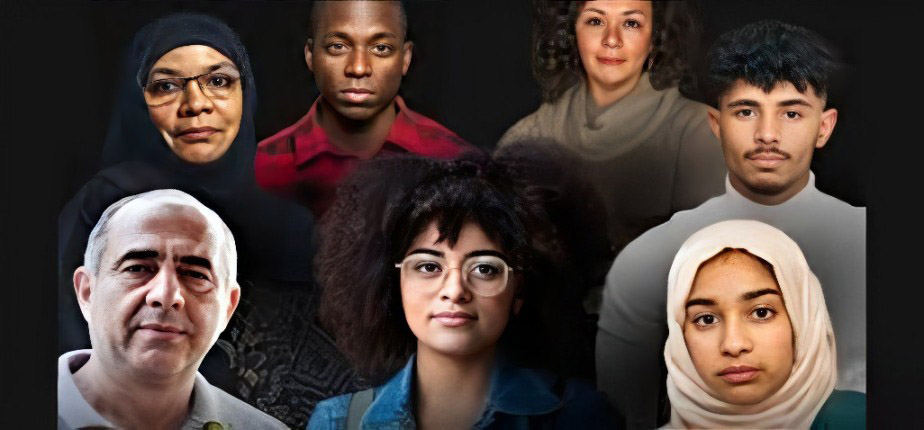
Elham Asaad Buaras
Muslims across Europe are facing a “worrying surge” of racism, largely fuelled by “dehumanising anti-Muslim rhetoric,” according to a recent survey from the EU’s leading rights agency. Released on October 24 by the EU Agency for Fundamental Rights (FRA), the survey revealed that nearly half of the 9,600 Muslim respondents from 13 member states reported experiencing discrimination.
The survey highlighted that racism and discrimination permeate various aspects of life for Muslims. Participants shared troubling accounts of children being bullied in schools, unequal job opportunities, and bias in housing—whether renting or buying.
Although the survey was completed before October 7, 2023, the FRA noted that information from civil society organisations and national authorities indicates an uptick in anti-Muslim incidents since the conflict began. “We are witnessing a worrying surge in racism and discrimination against Muslims in Europe,” said Sirpa Rautio, the agency’s director. “This is fuelled by conflicts in the Middle East and made worse by the dehumanising anti-Muslim rhetoric we see across the continent.”
In the aftermath of the October 7 attacks, officials addressed a rise in hate crimes directed at both the Muslim and Jewish communities. Incidents ranged from an attempted arson at a synagogue in Berlin to numerous threatening letters sent to Muslim councils and mosques in France.
The FRA’s findings revealed that 47% of Muslims surveyed in Austria, Belgium, Denmark, Finland, France, Germany, Greece, Ireland, Italy, Luxembourg, the Netherlands, Spain, and Sweden reported experiencing racism in the five years prior to 2022, a rise from 39% in 2016. “What we see is that the situation of Muslims is getting worse,” said Vida Beresnevičiūtė, a co-author of the survey. “It’s getting more complicated to live as a Muslim in the EU.”
The rise in reported discrimination seems closely tied to the growing influence of far-right politics. In Austria, where the anti-immigration Freedom Party (FPÖ) recently emerged as the most popular party, a staggering 71% of Muslims reported recent experiences of racism. Meanwhile, in Germany, where the anti-immigration Alternative für Deutschland continues to gain traction, 68% of Muslims reported facing discrimination.
Among the 13 member states surveyed, 39% of Muslims indicated discrimination in the job market, with 41% overqualified for their current roles. Additionally, 35% of respondents said they had faced obstacles in buying or renting a home due to discrimination, up from 22% in 2016. “The phenomena are pervasive and persistent,” Beresnevičiūtė remarked. “The scope is overwhelming.”
The impacts of this racism are both far-reaching and enduring. Muslims are more likely to live in poverty, often in overcrowded housing, and are 2.5 times more likely to be on temporary contracts.
Furthermore, Muslim respondents are three times more likely to leave school early compared to the general population across the EU.
Particularly alarming are the experiences of young Muslims. Over half of those born in Europe (55%) reported experiencing racial discrimination while seeking employment in the past five years, indicating unequal treatment despite having similar language skills and qualifications. “It’s appalling,” Beresnevičiūtė said, noting that many Muslims described experiencing “overlapping” discrimination based on their religion, skin colour, and immigrant background.
Women who wear religious attire, such as headscarves, also reported higher rates of discrimination in the workplace. Among women aged 16 to 24 who wear religious clothing, the reported rate of discrimination surged to 58%.
Despite these troubling experiences, only a small percentage felt it was worthwhile to report them, with just 6% saying they had filed a complaint about a recent incident.
The FRA has urged EU member states to implement stricter penalties for discrimination and hate crimes while gathering equality data, including on ethnic or racial origin, to help policymakers set effective targets. Unlike the UK, most EU countries do not collect census data on racial or ethnic diversity.
This need for action is evident in England and Wales, where anti-Muslim crimes have surged. Home Office data shows a 13% increase in recorded offences, totalling 3,866 incidents, making Muslims the most affected group at nearly 40% of all religious hate crimes. Overall, religious hate crimes rose by 25%, reaching 10,484 incidents in the year ending March 2024.
Tell MAMA reported 4,971 cases of anti-Muslim hate and discrimination between October 7, 2023, and September 30, 2024, the highest level of Islamophobia in over a decade. Of these incidents, 63% involved abusive behaviour, and 27% were threatening, particularly in London, the Northwest, Yorkshire, and the Midlands. The ongoing tensions in Gaza have contributed to an 800-1,000% rise in anti-Muslim cases since Tell MAMA’s inception in 2012.
Furthermore, a survey by the Women’s Muslim Network UK revealed that 80% of victims of anti-Muslim hate crimes after the summer riots chose not to report their experiences. Before the riots, only 17% of Muslims expressed deep concerns for their safety, but this number rose dramatically to 73% afterwards, highlighting increasing fears within the community. This survey follows a previous report showing that nearly half of Black respondents across the EU reported experiencing discrimination, alongside a July survey revealing that nearly all Jewish respondents encountered antisemitism. Beresnevičiūtė emphasised that racism and racial discrimination persist throughout the EU, demanding immediate and specific actions to address it. “Without specific efforts, it does not disappear.”